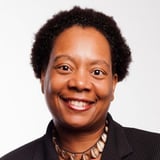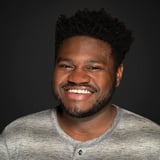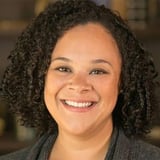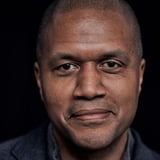Summary
A story about how to quantify and use survey data to create audience clusters that are statistically representative of the people that use your online product or service. Edgar joins the dots between multiple research/pattern finding/storytelling techniques, such as proto-personas, affinity mapping, survey creation, quantification of qualitative data, organic clustering of audiences, user interviews, journey maps, and business modeling canvas. It makes research tangible and actionable: instead of being an end-point that provides stakeholders with insights, it takes stakeholders through an inclusive and structured process they can be part of.
Key Insights
-
•
Research often fails when stakeholders are not involved or don't trust the data sources and methodologies.
-
•
Treating research as a product, with stakeholders as users, drastically increases engagement and usability.
-
•
Using proto-persona workshops with cross-department stakeholders helps generate unbiased, relevant survey questions.
-
•
Clustering survey data via Python and correlation matrices can reveal meaningful user segments with statistical significance.
-
•
Statistical validity (e.g., 95% confidence at 5% margin) is critical for stakeholder buy-in in large user bases.
-
•
Behavioral and demographic clusters need to be augmented with emotional attributes to create actionable personas.
-
•
Affinity mapping large qualitative datasets reduces noise and distills coherent narratives and pain points.
-
•
Mapping pain points to measurable hypotheses enables prioritization based on user impact and implementation effort.
-
•
Divergent and convergent workshops using tools like the business model canvas help explore and refine value proposition delivery.
-
•
Iterative, lean research with frequent stakeholder feedback helps identify and minimize bias effectively.
Notable Quotes
"Research should be done the same way products are built, with stakeholders as your users."
"If you frame the research in terms your stakeholders understand, they will become research-hungry."
"We don’t make big deliverables because they create friction; instead, we create shared understanding through conversations."
"Proto-persona sessions helped us avoid departmental bias and uncover the questions stakeholders really cared about."
"We used a 0.8 correlation threshold to tightly cluster similar survey responses, balancing cluster count and inclusion."
"Clusters alone aren’t personas; we turned clusters into interview screeners and then emotional personas."
"We wrote hypotheses as we believe this pain point matters, here’s how we test it, and how success looks."
"Different stakeholders tackle the delivery problem differently, which gave us necessary divergent thinking."
"Biases surface as you iterate, so lean approaches help you find and fix them quicker."
"Marital status mattered because some people buy cars for their spouses or kids, not just themselves."
Or choose a question:
















More Videos

"Self-care became a commodity where buying things was mistaken for healing and support."
Deanna ZandtThe Unspoken Complexity of “Self-Care” with Deanna Zandt
July 21, 2022

"In Toronto it’s now illegal to transmit a Wi-Fi signal in designated public spaces, with penalties for violations—a policy driven by people wanting to unplug from digital life."
Sarah GallimoreInspire Progress with Artifacts from the Future
November 18, 2022

"Let’s lead with curiosity, govern with integrity, and courageously transform the landscape of design operations."
Changying (Z) ZhengNavigating Innovation with Integrity
September 25, 2024

"Sometimes the solution perceives the problem in the eyes of users, especially in enterprise spaces."
Alexandra SchmidtEnterprise UX Playbook
December 1, 2022

"All lists are prioritized lists — what's most important should be at the top."
Harry Max Jim MeyerPrioritization for Leaders (2nd of 3 seminars)
June 27, 2024

"Evals are really your intellectual property—they define what good looks like in your domain."
Peter Van DijckBuilding impactful AI products for design and product leaders, Part 2: Evals are your moat
July 23, 2025

"There’s a big merger in this space and two UX giants haven’t been behaving nicely, introducing higher prices and stricter commercial terms."
Andy Barraclough Betsy NelsonFrom Costly Complexity to Efficient Insights: Why UX Teams Are Switching To Voxpopme
September 23, 2024

"What screen readers allow us to do is to jump directly to bits of content that we are interested in to replicate the visual experience of skimming a web page."
Sam ProulxSUS: A System Unusable for Twenty Percent of the Population
September 29, 2021

"The best solutions come from good questions and sitting with the problem, not rushing to fix."
Joshua GravesWe Need To Talk: Addressing Unmet Expectations (Part 2 of 3)
April 28, 2025
















